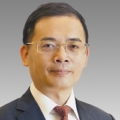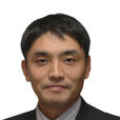Economics | 2 min read June 2020

Economics | 3 min read | June 2020

Economics | 3 min read | June 2020
During our virtual Nomura Investment Forum Asia conference this year, our economists explain what the global economy is going to look like in light of Covid-19 and other global events such as the United States election.
China
China’s recovery is expected to be a slightly complicated picture. In Q2, recovery leans towards positive, but with large divergences among sectors, where construction is a bright spot, led by infrastructure. The export sector, with items such as medical products and refrigerators, would benefit from China’s early recovery. There could be some pent-up demand, particularly in some capital goods, to make up for loss in Q1. In the property sector, we are still seeing some headwinds.
Social distancing measures and rules will still apply, which heavily impact the service sector. These measures could extend well into H2 as the pandemic spreads to a wider range of countries. The US-China relationship could further impact the latter’s exports and export-related manufacturing investment.
United States
In the US, the Congress has already approved roughly over US$3 trillion in fiscal support, primarily through transfers and tax relief. We expect another modest round of fiscal stimulus in coming weeks. However, political partisanship is constraining fiscal options.
On the other hand, the Fed is likely to keep short-term rates at current levels for the foreseeable future. They have also established nine new credit and liquidity programs under its emergency authority though the volume of transaction is, so far, minimal.
The immediate rebound from Covid-19 will likely see an increase of output as lockdowns ease and manufacturing, restaurants and retail stores resume operations. There are three important factors which will determine how strong the economic recovery will be: the damage to workers and business, the lingering impact of Covid-19 on consumer behavior, and fiscal and monetary support.
Europe
While we believe the shock of Covid-19 will be disinflationary, some believe it could be inflationary in the medium to long-term. There are arguments on both sides. Making the case for disinflation, we could see a bounce back in supply and demand may return only slowly; we are seeing unemployment and wage shocks, and there could be an energy price chain reaction in terms of price expectations. Another thing to remember is that the global financial crisis did not produce inflation despite sizable policy stimulus.
The risk of inflation comes from supply side scarring, a shift in supply chains, money supply boost and fiscal support. There may also be a willingness to entertain a period of higher inflation by central banks (so called make-up strategies).
Japan
Since the state of emergency was declared in Japan, the daily number of positive Covid-19 cases has been decreasing, tracking the path where the effective reproduction rate of the virus is below 1, thus signaling a low risk for a second wave. There’s good reason for Japan to lift this state of emergency and for us to expect the worst phase for the Japanese economy is over.
Starting from Q3, we foresee an L-shaped recovery in the economy. Since Japan is under risk of a second wave, the government is cautious in easing social distancing measures, which can detain the speed of economic recovery for a while. The second reason is the possible negative knock-on effects from the first wave shock of the virus such as the deterioration of corporate sales and profitability.
To watch the full presentation, please visit our Nomura Investment Forum Asia website (requires guest login).
For more insights into our global economic outlooks post Covid-19, we have published the following reports:
Introducing Nomura’s visual tool to gauge the risk of a COVID-19 second wave
Global Economic Outlook Monthly - A long and winding road to full recovery
Anchor Report: COVID-19’s impact on the world economy

Head of Global Macro Research

Chief China Economist

Chief UK & Euro Area Economist

Chief US Economist

Chief Japan Economist
This content has been prepared by Nomura solely for information purposes, and is not an offer to buy or sell or provide (as the case may be) or a solicitation of an offer to buy or sell or enter into any agreement with respect to any security, product, service (including but not limited to investment advisory services) or investment. The opinions expressed in the content do not constitute investment advice and independent advice should be sought where appropriate.The content contains general information only and does not take into account the individual objectives, financial situation or needs of a person. All information, opinions and estimates expressed in the content are current as of the date of publication, are subject to change without notice, and may become outdated over time. To the extent that any materials or investment services on or referred to in the content are construed to be regulated activities under the local laws of any jurisdiction and are made available to persons resident in such jurisdiction, they shall only be made available through appropriately licenced Nomura entities in that jurisdiction or otherwise through Nomura entities that are exempt from applicable licensing and regulatory requirements in that jurisdiction. For more information please go to https://www.nomuraholdings.com/policy/terms.html.
Economics | 2 min read June 2020
Economics | 2 min read June 2020
Economics | 3 min read April 2020